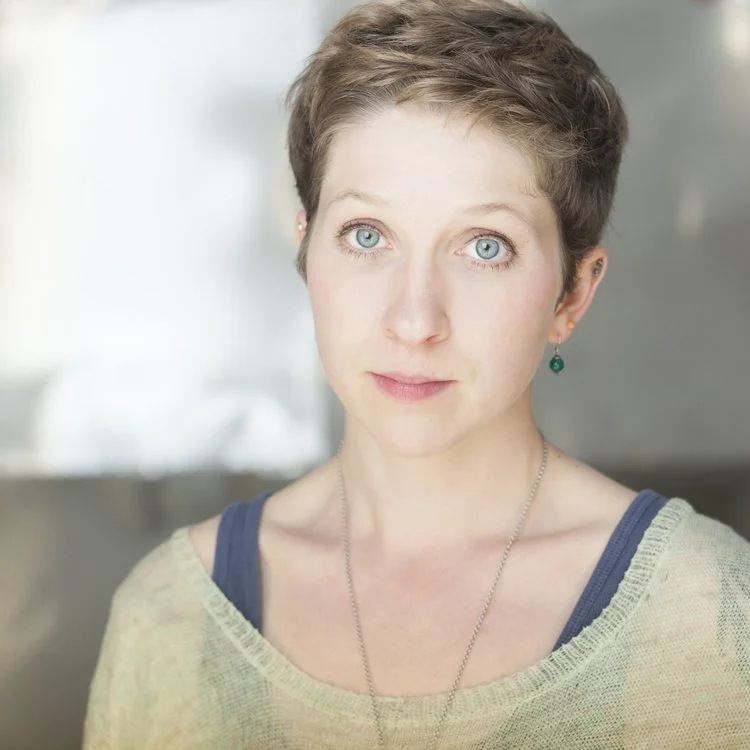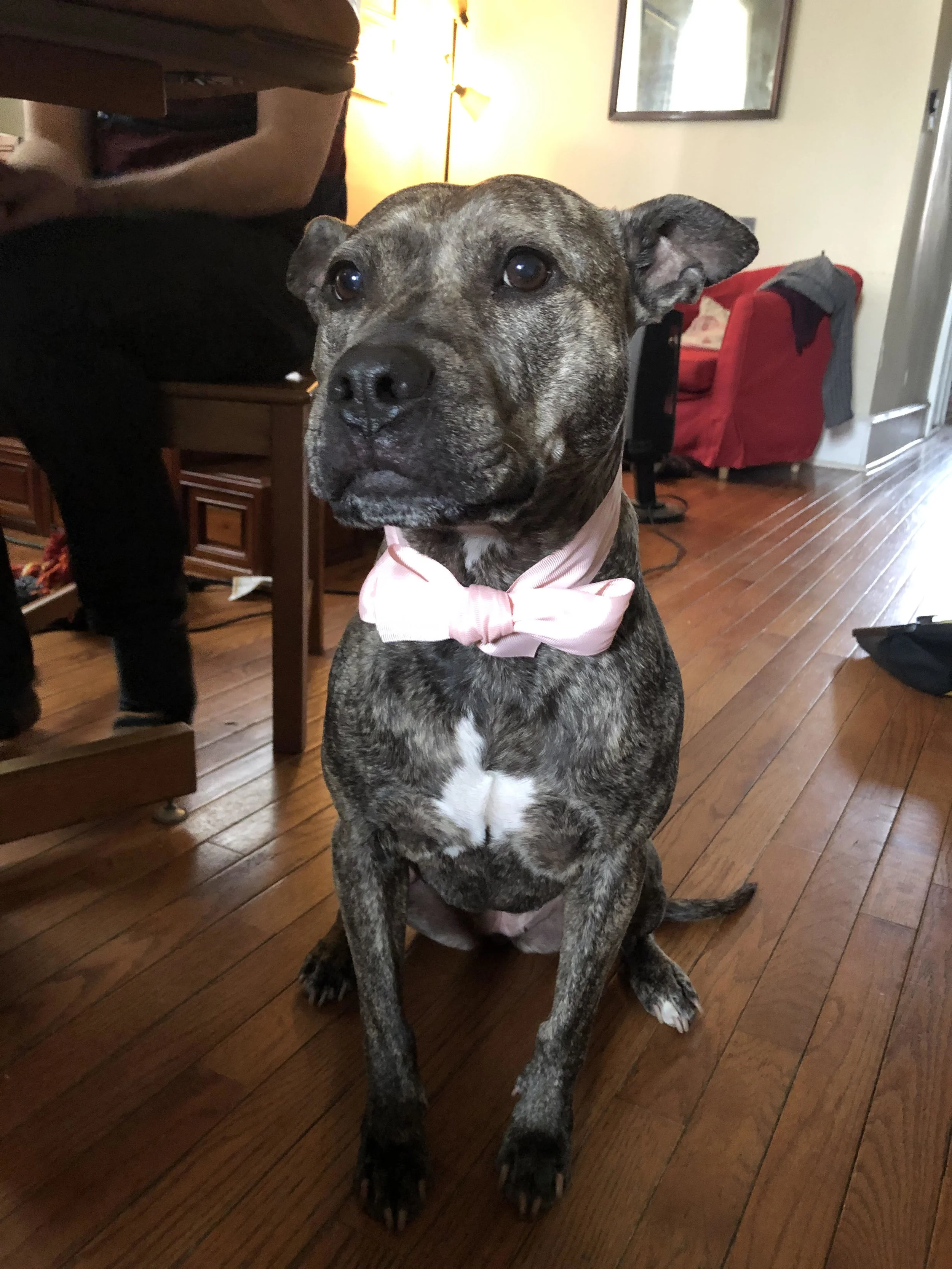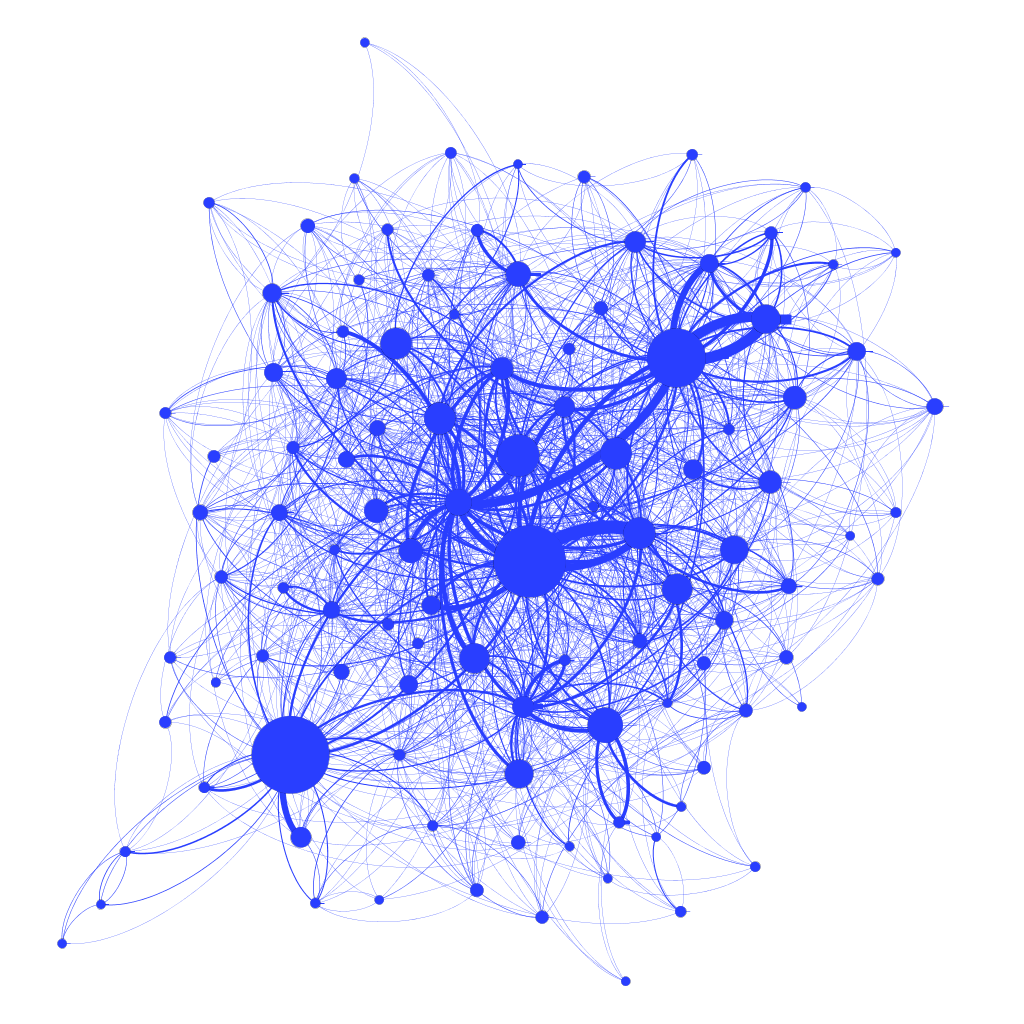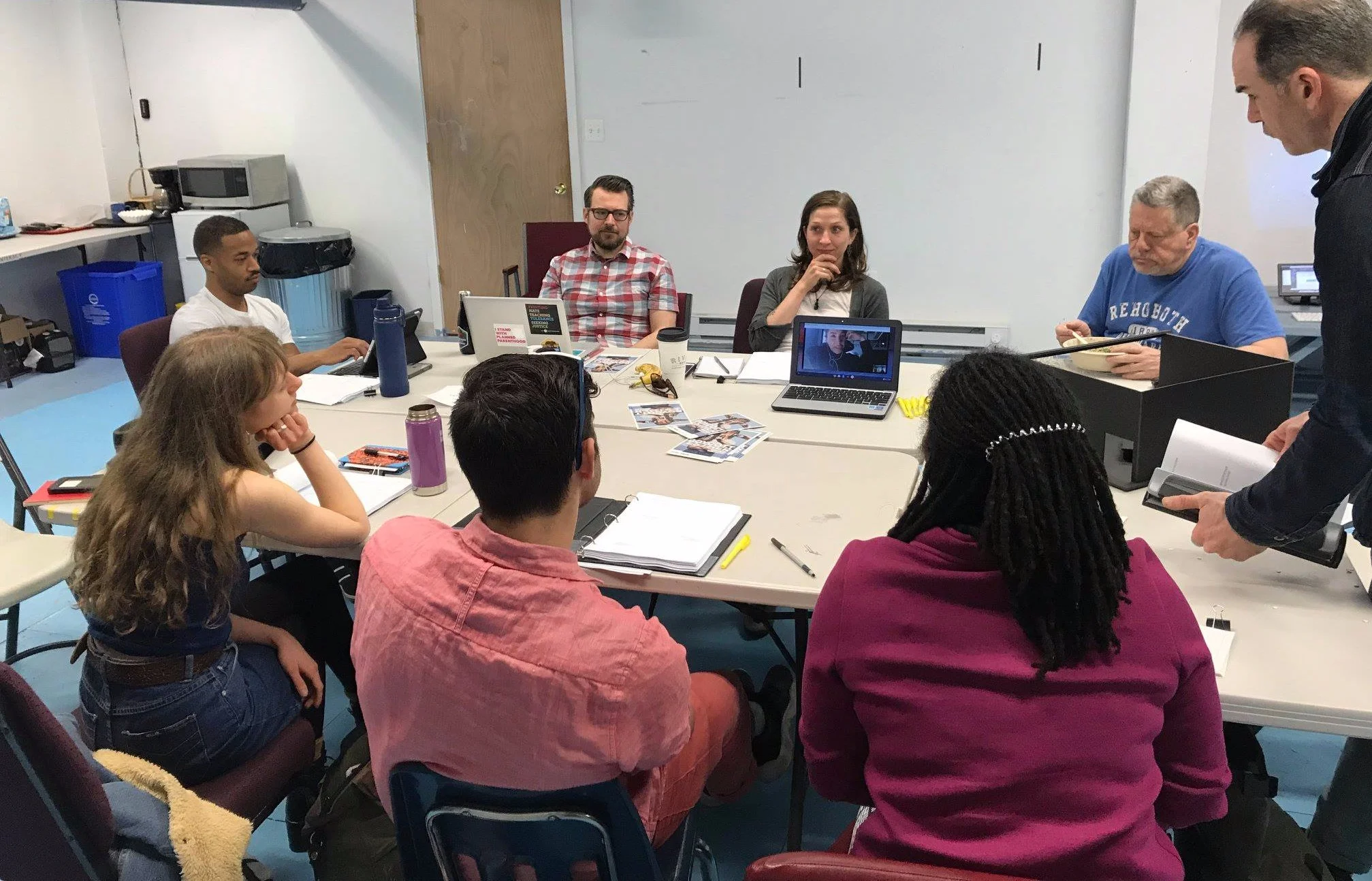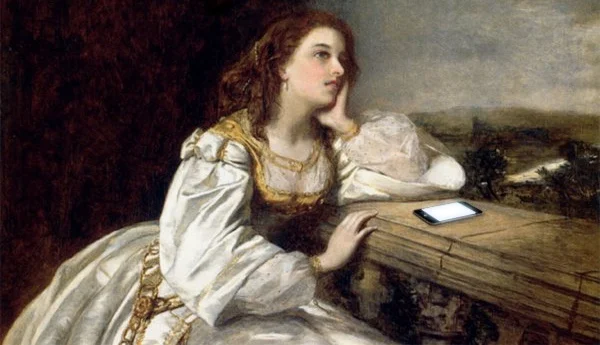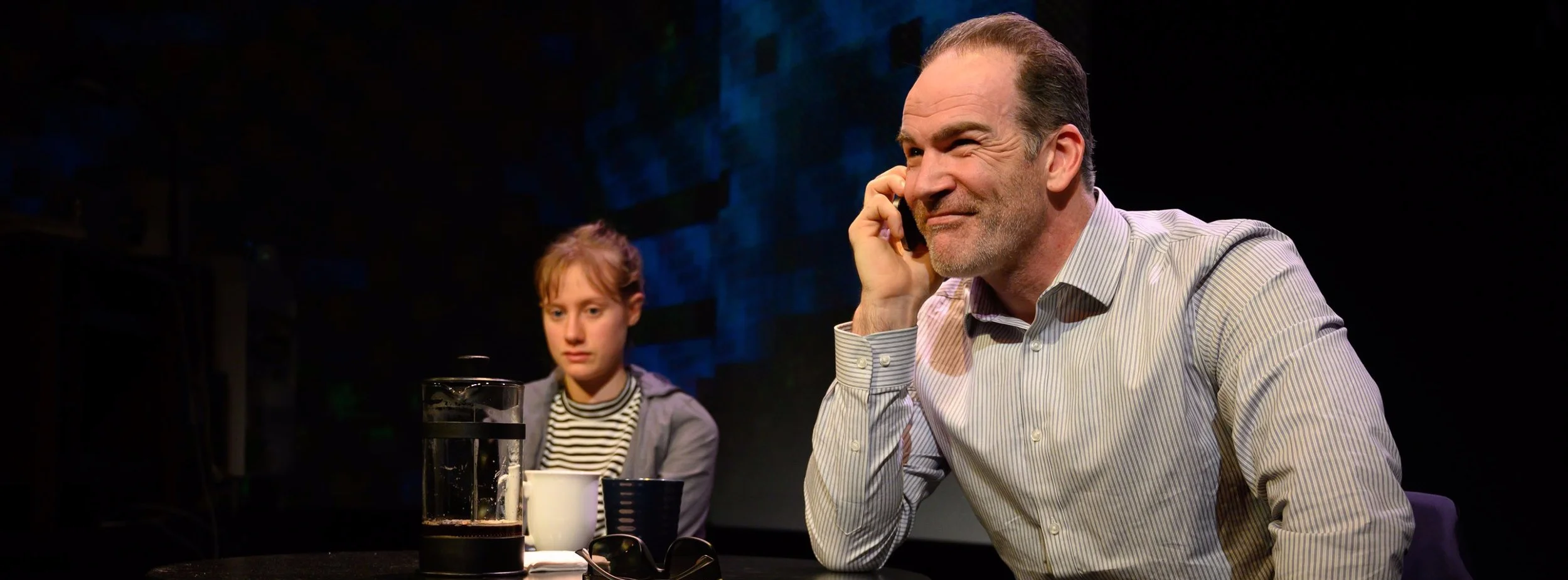Directing BOYCOTT ESTHER in the #MeToo Era: An Interview with Maura Krause
As of right now, Friday afternoon, you have only 4 CHANCES left to see BOYCOTT ESTHER! The show closes Sunday (reserve tickets here!) and in honor of that, I asked some questions to the director herself, Azuka’s own Maura Krause.
Here’s what she had to say!
Azuka is a very local, community-focused theatre. What are some of your favorite spots in Philly and why?
I love Philly. My favorite spot in Philly is the Woodlands Cemetery in West Philly — it's so beautiful in every season, and has a lot of serenity and history to it all at once. I also love Lemon Hill, where I walk my dog, and the Wissahickon, and Washington Square. I love 30th Street Station actually, I'm always so happy to come home to Philly via train. I'm a big fan of Elixr Coffee, where one of my best friends worked for a long time, and I have a half-hipster half-yuppie soft spot for Tria. One of my happiest places is 8 Limbs Academy, the Muay Thai gym that I train at, which is a miracle of an inclusive and welcoming martial arts environment. Shout out too to Crime & Punishment, a dope brewery in my neighborhood, and Dock Street, whose beer is great and whose pizza is the 'za of my dreams (bring back the Sicilian though guys!!!)
Rye looking dapper
We like to celebrate the OutCATS and UnderDOGS of the Azuka family. Do you have any pets?
Yes, I have an extremely cute and sometimes terrible dog named Rye, who may not be a dog at all but some freakish bat/giraffe/pig hybrid. My co-parent and I joke that she's a Philly special — definitely some pit bull in there, but who knows what else.
Now to ESTHER. Do you remember when you first saw the #MeToo hashtag? What was your immediate response to the movement?
I'm not sure when I first saw the hashtag. It was probably on Instagram. I do remember going down the endless rabbit holes of that hashtag, clicking on #MeToo and then reading article after article, seeing opinions and memes and heartbreaking personal accounts in the form of Facebook posts or Instagram captions. It was almost immediately exhausting and at the same time I felt this kind of satisfied fury — finally, FINALLY women were being heard.
Social movements like #MeToo, and a life like Esther’s, would be impossible without social media. What do you think are the most significant ways in which social media has changed the way you live your life?
I'm not a big social media person, frankly. At this point I'm rarely on Facebook and the only social media platform I truly appreciate is Instagram, because I love photography and have curated my feed very particularly. That said, maybe about 5-6 years ago, social media was really helpful in furthering my socially progressive education. I followed friends and writers and activists who posted things that helped me understand better my own privilege, and be exposed to the experiences of marginalized folx. For me, the two most positive aspects of social media are the opportunity to self-educate, and the power of voices in aggregate. I don't think I live my life much differently due to social media, but my world has been expanded by it. Of course, there's always the threat of comparison — why does so-and-so's life look so much better than mine — and I'll admit I've had to work to ignore that urge.
“For me, the two most positive aspects of social media are the opportunity to self-educate, and the power of voices in aggregate.”
You’ve mentioned before that you appreciate the humor of this show. Why is humor important to you in a show like this and how do you balance that with its more serious moments?
The more I make theatre, the more I think a piece lacking in humor is actually super artificial. Our existences are inherently humorous in a very mundane way — our bodies, our awkward interactions with others, our daily coincidences. When was the last time you had a day that didn't have at least one strange funny moment in it? So, if we're going to try to tackle big-picture serious issues, we have to do it with humor or those themes will seem removed. I don't want people to be able to intellectualize difficult content — I want to draw them into living the big questions of the play alongside the characters. Plus, I just think non-stop seriousness and drama can be really wearing, and make an audience check out or become numbed to the emotional lives playing out onstage.
Maura and team at BOYCOTT ESTHER’s first rehearsal
The stage of this show is surrounded by screens, Esther is always interacting with screens. In what ways do you think technology has and will continue to impact theatre, and how communication is represented on stage? — And how is that directing process different?
Oof. Well, I think one of my strong suits as a director is scenework, so it was difficult and very different to only be able to direct one side of a scene. I have no experience directing film, and I definitely learned on the fly directing the digital character moments. I guess for me the process veers a little more into choreography — like I would say a lot of what Alison and I did together in rehearsal was try to choreograph her time onstage into something that seemed organic and real but also stayed visually interesting. But I'm not sure how much technology will impact theatre — I think for those that are interested in exploring it, it will be the same as any other advance in an art form, and just open up new opportunities. I think that theatre will always be about bodies in front of us, in real space and time, though, no matter what kind of technology we experiment with. That is part of the wonder of it.
If you could direct an older show, but have its world updated with modern technology, which show would you do and why? And/or have you already done something like that?
“Yo, faking my own death, meet me after”
I'm not much of a one for updating older shows. I did just do Hedda Gabler with a group of college students, and got really excited about an imaginary production that adapted that play to be set in a modern high school, which I could see involving a lot of social media and text messaging. Also I've always imagined doing a modernized version of Romeo & Juliet in the era of cellphones, where the surprise is that Juliet just texts Romeo "Yo, faking my own death, meet me after" and no one dies, but then we have to watch the slow melodramatic but deeply painful disintegration of the first love of these two teenagers. That feels so much more relevant to me than tragic deaths because of some family feud.
You have also said that you hope ESTHER, rather than offering a solution, just gets people to have conversations. That’s something I’ve found a lot of people say in my research about #MeToo, that in order for there to be change, the conversations need to keep up their momentum, it needs to be ongoing. What are ways you see for people to facilitate that dialogue? How do we keep it going?
Well first and foremost I think this dialogue has to happen on an individual scale. While the large-scale movement of #MeToo was crucial, I think it was crucial in that it sparked a lot of individual reflection and small group conversation. To this end, I really believe men have to take care of their own. It is unacceptable to expect the survivors of sexual assault and harassment to do the work of teaching people how to be better. The first step is for men to privately interrogate their own assumptions and behavior, but without looking for some kind of praise or reward for doing that work. The second is for men to talk to each other and hold each other accountable for their actions. I also think that if non-men can approach this topic in a way that doesn't cost them too much, that is an important way to keep the dialogue moving. For example, I know my own capacity — there are a lot of men in my life whose processing of male privilege I've facilitated because I love them, but I don't have time to hold the hands of strangers in the early phases of confronting their patriarchal socialization.
Alison Ormsby and Steven Rishard. Photo by Johanna Austin/AustinArt.org
Thank you so much for taking the time, Maura! Readers, how, where, and among whom do you see the most productive conversations about sexual assault and harassment happening? And how can we keep it going?
Thank you so much to all who have already joined us for BOYCOTT ESTHER, and we hope to see a great many more of you in our closing weekend.
- Lucas

